For a man so keen to thrust himself onto the international stage, Emmanuel Macron has been surprisingly quiet over the last fortnight. At the beginning of 2022, the President of France shuttled across Europe in an attempt to avert conflict between Russia and Ukraine. Though his diplomatic efforts were criticised in some Anglophone quarters, Macron earned the respect of many in France for attempting to talk Vladimir Putin out of war.
Now there is another war raging but this time Macron has had little to say about the conflict between Israel and Hamas. He has offered his measured support to Israel but he has not yet followed Joe Biden, Ursula von der Leyen, Olaf Scholz and Rishi Sunak to Tel Aviv to tell Benjamin Netanyahu in person (despite saying that he plans to at some point). Macron never likes to be upstaged – particularly by his fellow European leaders – and it raises the question as to why the president is reluctant to make the trip to Israel.
Macron is at least aware of the gravity of the mistake, even though he will never admit it publicly
The answer appears to be fear. Not for his own safety but for what such a visit might provoke in France. As Le Monde put it, Macron is ‘weighing up the options and assessing the risks and rewards’.
Macron alluded to his dilemma on Thursday during a discussion with some youngsters in Paris. ‘If we manage this situation badly, it could be divisive,’ he explained. ‘We have the largest Jewish community… in Europe, and we have a huge number of young people from the Middle East, North Africa and Africa. We also have a lot of young people of Muslim faith’.
There has already been one Islamist attack in the wake of the conflict in Gaza – the murder of a schoolteacher in Arras – and Macron and his government are fearful that more may follow, particularly if he is filmed standing shoulder to shoulder with Netanyahu in Israel.
On Thursday evening, there was a rally in Paris in support of Palestine; it passed off peacefully enough but it was instructive to see the flags on show: Palestine flags, of course, but also those of Turkey, Tunisia, Algeria and Morocco, not to mention the various accents crying ‘Allah Akbar’ and ‘We are all Palestinians’.
On Wednesday, thousands of Tunisians gathered outside the French Embassy in Tunis to vent their anger against the Israelis and the West for supporting what they consider an indiscriminate bombardment of Gaza. ‘Macron is a murderer’ and ‘France is no longer welcome’ were among the messages brandished on placards.
There were similar anti-western sentiments in Algiers on Thursday at another mass demonstration in support of Palestine. Demonstrators accused Europe of supporting a ‘genocide’ against the Palestinians and one man, a small business owner, told a reporter from Le Figaro: ‘The situation in the Middle East shows just how wide the gulf is between us, the Europeans and the Americans…France’s unconditional and blind support for Israel, in particular, marks a breaking point between North and South.’
These demonstrations, whether they are in Tunis, Algiers, Paris, Berlin or London, should terrify every western European leader. As Henry Kissinger told the Germans earlier this month, the continent has committed a ‘grave error’ in thoughtlessly allowing millions of people from different, and often traditionally hostile, countries to settle in their midst.
Macron is at least aware of the gravity of the mistake, even though he will never admit it publicly. Others stumble blindly on, like Scotland’s First Minister, Humza Yousaf, who at the SNP conference this week called on the British government to lead the way in offering ‘safety and sanctuary to those [Palestinians] caught up in these terrible attacks.’
How might Britain’s Jewish community feel about the arrival of thousands of Palestinians? In 2014, the Anti-Defamation League (ADL) conducted a global survey on anti-Semitism in 100 countries and territories. The results were dispiriting. Almost half of the world’s adults had never heard of the Holocaust and over a quarter held anti-Semitic attitudes. ‘We can now identify hotspots [of anti-Semitism], as well as countries and regions of the world where hatred of Jews is essentially non-existent,’ concluded Abraham H. Foxman, ADL national director. The survey revealed ‘incredibly low levels of anti-Semitic beliefs’ in Protestant-majority countries in Europe: Denmark, Holland, Sweden and Britain. In contrast, anti-Semitism was notably higher in eastern Europe, where 34 per cent of those canvassed articulated the world’s oldest hatred. Nonetheless, it still paled into significance compared to the Middle East and North Africa, where 74 per cent of those polled held anti-Semitic views. However, the ‘anti-Semitism hotspot’, was the West Bank and Gaza with 93 per cent hostility.
In the decade since the ADL survey – which received prominent media coverage – Europe has allowed well over a million migrants to settle within its borders, the vast majority from the Middle East and North Africa. Did it ever occur to European leaders that this might lead to problems down the line?
In January this year, Suella Braverman was criticised in some left-wing circles because of the honest way she talked about the perils of mass uncontrolled immigration. A human rights NGO engineered a confrontation between the Home Secretary and an elderly Holocaust survivor at a constituency meeting. She accused Braverman of rhetoric similar to that ‘used to dehumanise and justify the murder of my family and millions of others’.
It was a fatuous accusation. Braverman should be seen as a friend to Britain’s Jewish community in her endeavours to bring the chaotic migration crisis under control. For too long Europe has allowed people to settle on the continent fully aware that some hold attitudes that are antithetical to our own liberal values.
This is now all painfully evident. According to Britain’s head of the Commission for Countering Extremism, the pro-Palestine protests last weekend were organised by Iranian and Hamas networks within the UK. The same is probably true in France. Sunak and also Keir Starmer deserve praise for their unequivocal solidarity with Israel. Macron hasn’t shown quite the same spirit. France is in a fix and its President doesn’t know what to do.
Got something to add? Join the discussion and comment below.
Get 10 issues for just $10
Subscribe to The Spectator Australia today for the next 10 magazine issues, plus full online access, for just $10.


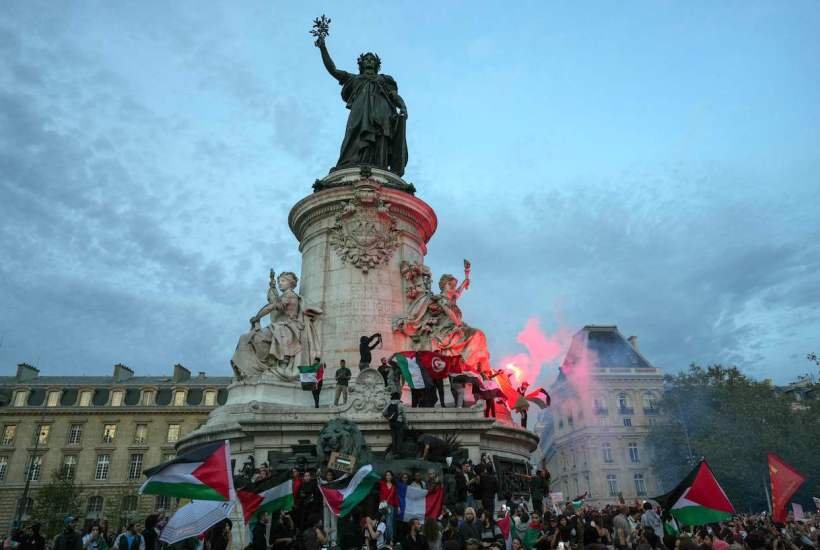
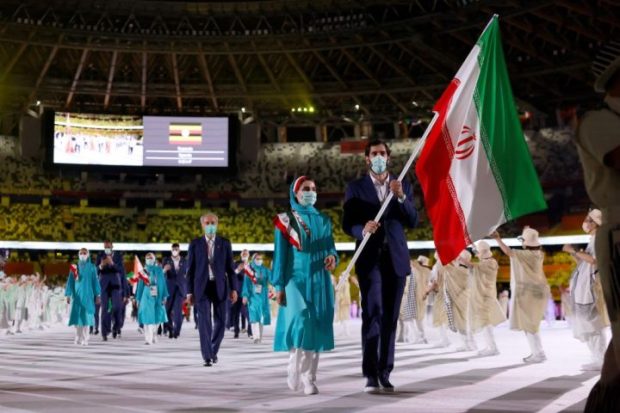
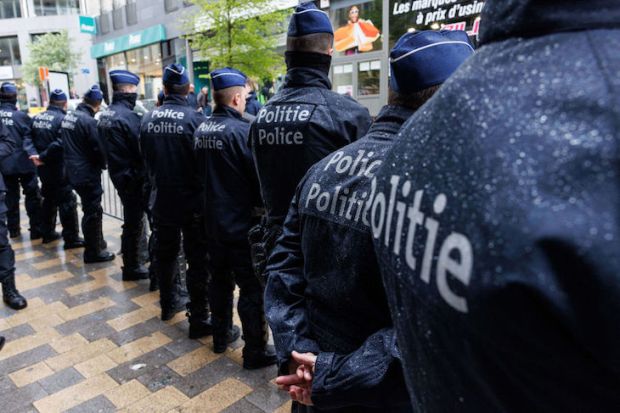

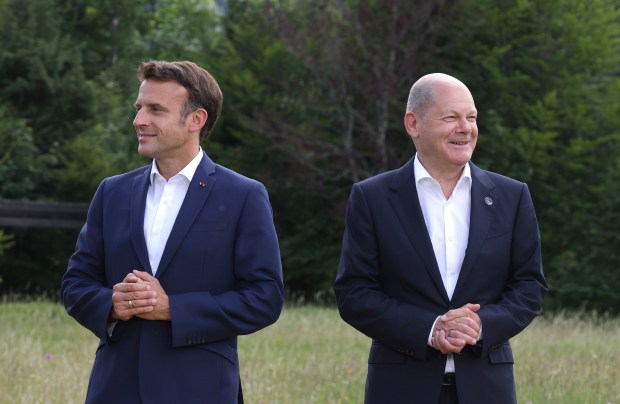
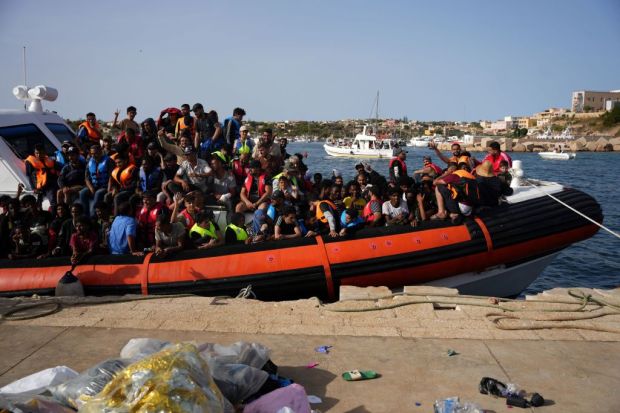













Comments
Don't miss out
Join the conversation with other Spectator Australia readers. Subscribe to leave a comment.
SUBSCRIBEAlready a subscriber? Log in